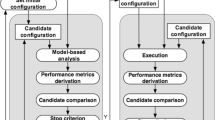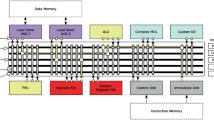Abstract
One of the key deliverables of the EU HiPEAC FP6 Network of Excellence is a roadmap on high-performance embedded architecture and compilation – the HiPEAC Roadmap for short. This paper is the result of the roadmapping process that took place within the HiPEAC community and beyond. It concisely describes the key research challenges ahead of us and it will be used to steer the HiPEAC research efforts.
The roadmap details several of the key challenges that need to be tackled in the coming decade, in order to achieve scalable performance in multi-core systems, and in order to make them a practical mainstream technology for high-performance embedded systems.
The HiPEAC roadmap is organized around 10 central themes: (i) single core architecture, (ii) multi-core architecture, (iii) interconnection networks, (iv) programming models and tools, (v) compilation, (vi) run-time systems, (vii) benchmarking, (viii) simulation and system modeling, (ix) reconfigurable computing, and (x) real-time systems. Per theme, a list of challenges is identified. In total 55 key challenges are listed in this roadmap. The list of challenges can serve as a valuable source of reference for researchers active in the field, it can help companies building their own R&D roadmap, and – although not intended as a tutorial document – it can even serve as an introduction to scientists and professionals interested in learning about high-performance embedded architecture and compilation.
Preview
Unable to display preview. Download preview PDF.
Similar content being viewed by others
Author information
Authors and Affiliations
Editor information
Editors and Affiliations
Rights and permissions
Copyright information
© 2007 Springer-Verlag Berlin Heidelberg
About this paper
Cite this paper
De Bosschere, K. et al. (2007). High-Performance Embedded Architecture and Compilation Roadmap. In: Stenström, P. (eds) Transactions on High-Performance Embedded Architectures and Compilers I. Lecture Notes in Computer Science, vol 4050. Springer, Berlin, Heidelberg. https://doi.org/10.1007/978-3-540-71528-3_2
Download citation
DOI: https://doi.org/10.1007/978-3-540-71528-3_2
Publisher Name: Springer, Berlin, Heidelberg
Print ISBN: 978-3-540-71527-6
Online ISBN: 978-3-540-71528-3
eBook Packages: Computer ScienceComputer Science (R0)




